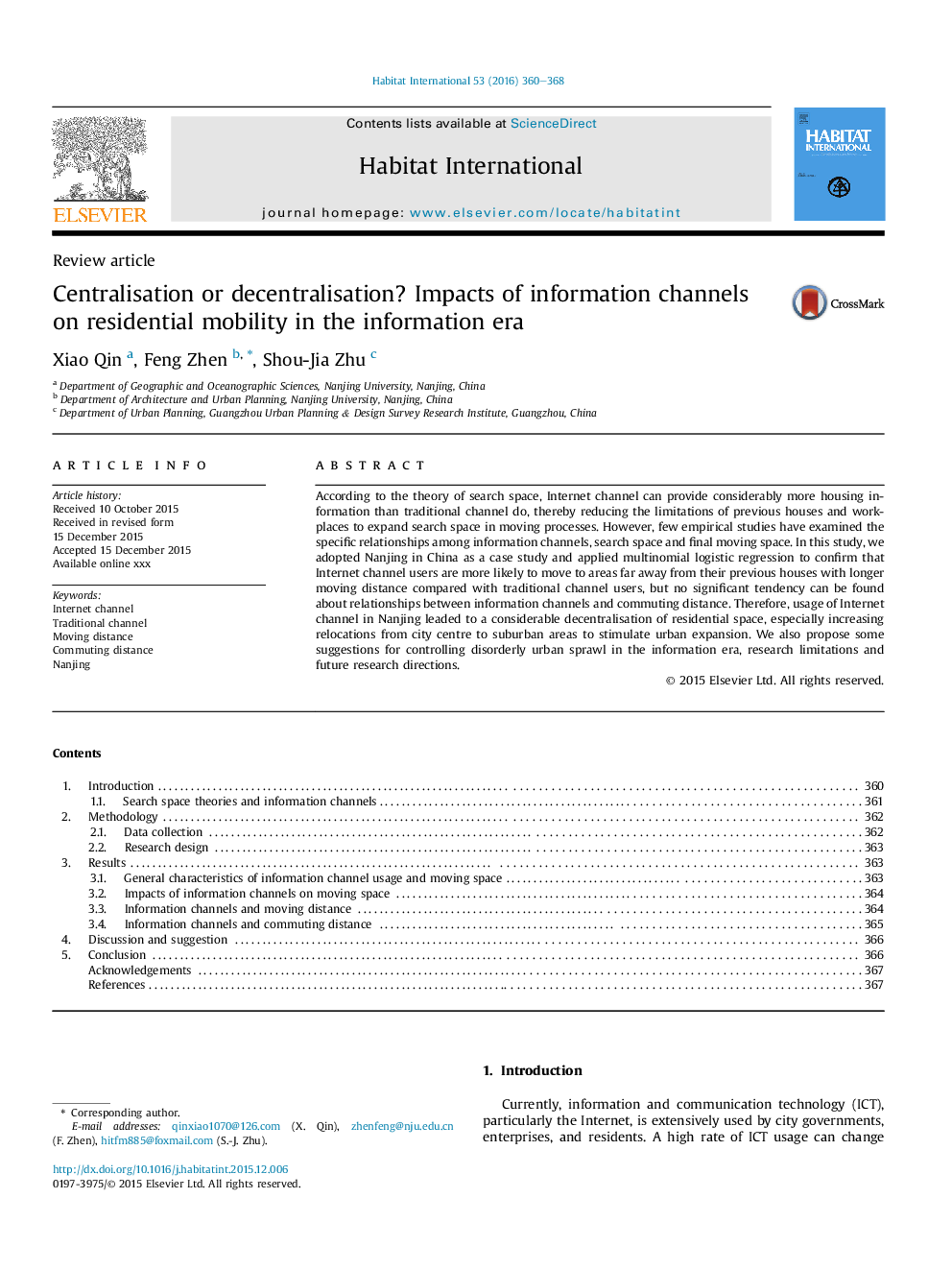| Article ID | Journal | Published Year | Pages | File Type |
|---|---|---|---|---|
| 7455483 | Habitat International | 2016 | 9 Pages |
Abstract
According to the theory of search space, Internet channel can provide considerably more housing information than traditional channel do, thereby reducing the limitations of previous houses and workplaces to expand search space in moving processes. However, few empirical studies have examined the specific relationships among information channels, search space and final moving space. In this study, we adopted Nanjing in China as a case study and applied multinomial logistic regression to confirm that Internet channel users are more likely to move to areas far away from their previous houses with longer moving distance compared with traditional channel users, but no significant tendency can be found about relationships between information channels and commuting distance. Therefore, usage of Internet channel in Nanjing leaded to a considerable decentralisation of residential space, especially increasing relocations from city centre to suburban areas to stimulate urban expansion. We also propose some suggestions for controlling disorderly urban sprawl in the information era, research limitations and future research directions.
Related Topics
Social Sciences and Humanities
Social Sciences
Development
Authors
Xiao Qin, Feng Zhen, Shou-Jia Zhu,
